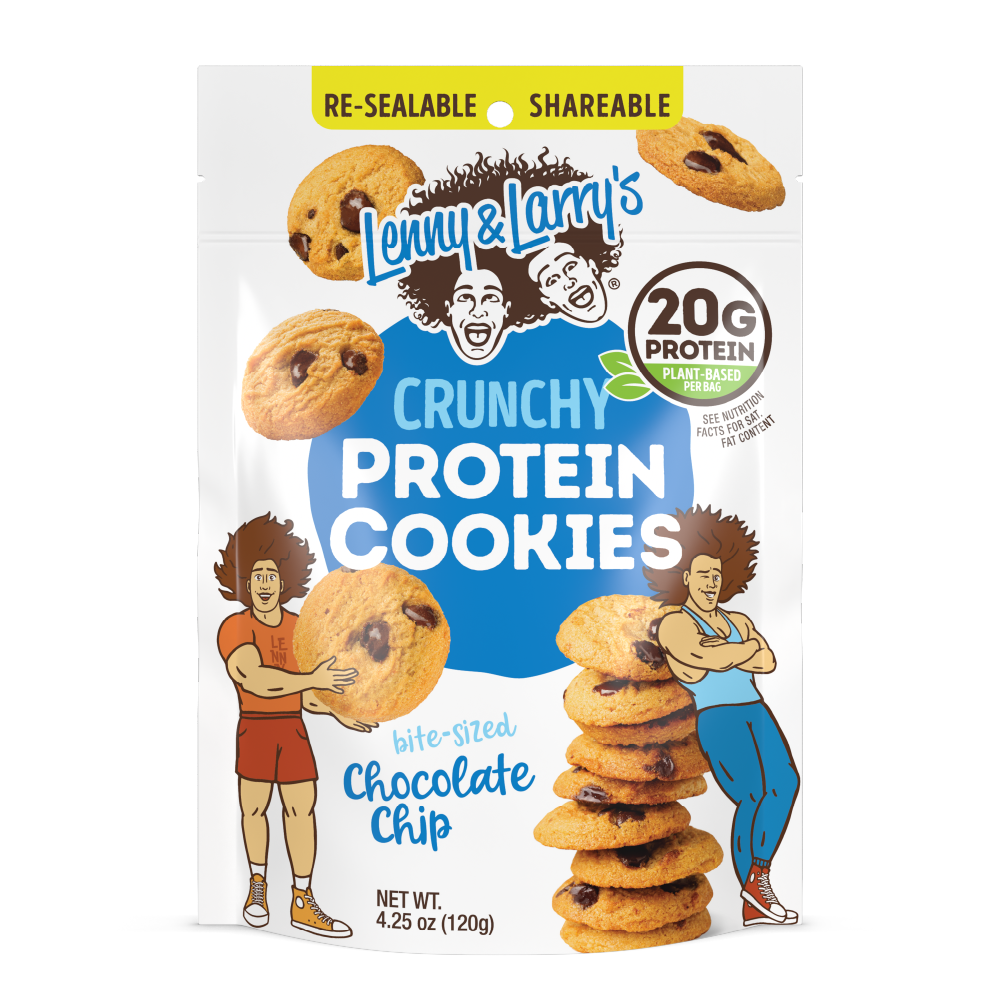Interest in gut health is exploding, and for good reason. Your microbiome (a community of trillions of bacteria, fungi, and other microorganisms in your digestive system) affects more than just digestion. It's deeply tied to your immune system, mental clarity, energy levels, and long-term disease prevention.
When your microbiome is thriving, you'll likely feel the benefits in many areas. But when it's out of balance, it can lead to issues ranging from fatigue and bloating to more serious conditions like inflammation and metabolic disorders.
So, how can you support this vital ecosystem?
Let's go through research-backed dietary strategies and lifestyle habits to help optimize your microbiome.
Before you begin - always consult your physician before beginning any exercise (or dietary) program(s). This general information is not intended to diagnose any medical condition or to replace your healthcare professional. Consult with your healthcare professional to design an appropriate exercise prescription (or dietary program) that's right for you.
The Role of Diet in Optimizing the Microbiome
What you eat directly shapes the health of your gut microbiome. Each bite introduces nutrients—or harmful compounds—that either promote or disrupt the balance of beneficial bacteria in your digestive system. A strategic approach to diet can help create an environment where good bacteria thrive, supporting digestion, immunity, and overall health.
1. Embrace Diverse, Fiber-Rich Foods
Fiber is the unsung hero of gut health. Your body does not digest it, but fiber serves as a vital food source for beneficial bacteria in your gut. Eating a wide range of whole foods, including fruits, vegetables, legumes, and whole grains, ensures your microbiome gets the diversity of nutrients it needs to flourish. These high-fiber foods act as prebiotics, stimulating the growth of beneficial bacteria.
Focus on incorporating foods like asparagus, garlic, onions, bananas, and oats. For example, resistant starch in bananas and oats feeds good bacteria and aids in producing short-chain fatty acids like butyrate, which help maintain gut lining integrity.
Rotate your food choices often; diversity in your diet leads to a more diverse microbiome linked to better overall health.
2. Add Probiotics and Fermented Foods
Probiotics are live microorganisms that support gut balance when consumed in adequate amounts. Fermented foods like yogurt, kimchi, sauerkraut, kefir, and miso are excellent natural sources of probiotics. These foods introduce beneficial bacteria, such as Lactobacillus and Bifidobacterium, which can help crowd out harmful bacteria and reinforce the gut barrier.
Choose products with "live and active cultures" on the label, as this indicates the presence of probiotics. For instance, plain, unsweetened yogurt contains gut-friendly bacteria without added sugar that could counteract the benefits. Start small with fermented foods if you're new to them, as your gut may need time to adjust.
3. Avoid Foods That Disrupt Gut Health
Just as some foods can nourish your microbiome, others can harm it. Diets high in processed foods, refined carbohydrates, and unhealthy fats can encourage the growth of harmful bacteria and reduce microbial diversity. Excessive sugar and artificial sweeteners, such as aspartame and sucralose, have been shown to alter gut bacteria composition, potentially increasing inflammation and metabolic issues.
Steer clear of ultra-processed snacks, sugary beverages, and foods with artificial additives. Instead, opt for minimally processed alternatives. For instance, swap sugary breakfast cereals for whole-grain oats topped with fresh fruit.
Making thoughtful dietary choices can significantly enhance the health of your microbiome. With every meal, you can foster an internal environment that supports a resilient gut.
Lifestyle Choices That Foster a Healthy Gut
Your lifestyle choices play a significant role in shaping your gut microbiome. Beyond diet, factors like stress, physical activity, and sleep profoundly impact the health and diversity of your gut bacteria. Incorporating intentional habits into your daily routine can help create an environment where beneficial microbes thrive, promoting overall well-being.
1. Manage Stress to Protect Your Gut
Chronic stress can also wreak havoc on your gut.
Prolonged stress triggers the release of hormones like cortisol, which can alter gut motility, increase intestinal permeability (commonly called "leaky gut"), and disrupt the balance of gut bacteria. Over time, this imbalance can lead to digestive issues, inflammation, and a weakened immune system.
To combat stress, consider adopting mindfulness practices like meditation or deep-breathing exercises, which have been shown to reduce cortisol levels and improve gut function. For example, setting aside 10 minutes daily to practice focused breathing or using guided meditation apps can help you stay consistent. Engaging in enjoyable activities - spending time outdoors, journaling, or pursuing hobbies - also helps lower stress and supports gut health.
2. Exercise to Boost Microbiome Diversity
Physical activity doesn't just strengthen your body; it can also improve your gut. Studies have shown that regular, moderate exercise increases the diversity of gut bacteria (associated with better digestion) reduces inflammation, and improves immune responses.
Activities like walking, cycling, and yoga are excellent for beginners and easy to integrate into your daily routine. Aim for at least 150 minutes of moderate-intensity exercise per week.
For those more advanced with exercising, resistance training or interval workouts can also positively affect gut health. Consistency is more important than intensity; even a daily 20-minute walk can make a difference.
3. Prioritize Sleep and Align with Your Circadian Rhythm
The connection between sleep and gut health is a two-way street. Poor sleep quality or insufficient rest can disrupt the microbiome, leading to a cascade of negative effects, including increased inflammation, stress hormone production, and digestive problems. On the other hand, a balanced gut can positively influence sleep by regulating serotonin production (a hormone involved in sleep cycles).
To promote better sleep and support your microbiome, establish a consistent sleep schedule by going to bed and waking up at the same time each day. Limit exposure to blue light from screens in the evening, as it can interfere with melatonin production. Additionally, consider your diet before bedtime and avoid heavy meals or caffeine late in the day, as they can disrupt your natural rhythms.
The gut and your internal clock are deeply linked, with research suggesting that irregular sleep patterns may harm the diversity and stability of gut bacteria. Aligning your lifestyle with your circadian rhythm helps keep your body and microbiome functioning optimally.
Simple Steps to Unlock a Healthier Gut Microbiome
Optimizing your gut microbiome isn’t complicated, but it does require consistent effort. By focusing on a diverse, fiber-rich diet, incorporating probiotic-rich fermented foods, and reducing harmful processed foods, you can set the foundation for a healthier gut. Complement these dietary choices with stress-reducing practices, regular physical activity, and quality sleep to create an environment where your gut bacteria can thrive.
Start small by adding one or two of these habits to your daily routine. Maybe you begin with a morning walk or try swapping a processed snack for a handful of fresh vegetables. These incremental changes can quickly add up, leading to noticeable improvements in your digestion, energy levels, and overall well-being.
A healthy gut microbiome has the power to transform your health from the inside out. Every step you take toward a balanced diet and lifestyle brings you closer to long-term vitality and resilience. Your microbiome is ready to support you, are you ready to support it?
 Lenny and Larrys
Lenny and Larrys
